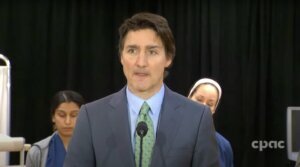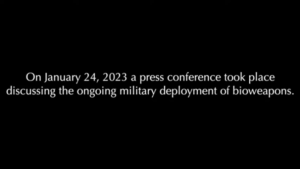Exclusive: WHO Proposals Could Strip Nations of Their Sovereignty, Create Worldwide Totalitarian State, Expert Warns
In an interview with The Defender, Francis Boyle, J.D., Ph.D., bioweapons expert and professor of international law at the University of Illinois, said the World Health Organization’s (WHO) latest proposals may violate international law. Boyle called for U.S. federal and state governments to exit the WHO immediately.
By Michael Nevradakis, Ph.D.
Secretive negotiations took place this week in Geneva, Switzerland, to discuss proposed amendments to the World Health Organization’s (WHO) International Health Regulations (IHR), considered a binding instrument of international law.
Similar negotiations took place last month for drafting a new WHO pandemic treaty .
While the two are often conflated, the proposed IHR amendments and the proposed pandemic treaty represent two separate but related sets of proposals that would fundamentally alter the WHO’s ability to respond to “public health emergencies” throughout the world — and, critics warn, significantly strip nations of their sovereignty.
According to author and researcher James Roguski , these two proposals would transform the WHO from an advisory organization to a global governing body whose policies would be legally binding.
They also would greatly expand the scope and reach of the IHR, institute a system of global health certificates and “passports” and allow the WHO to mandate medical examinations, quarantine and treatment.
The whole story;
In an interview with The Defender, Francis Boyle, J.D., Ph.D., bioweapons expert and professor of international law at the University of Illinois, said the World Health Organization’s (WHO) latest proposals may violate international law. Boyle called for U.S. federal and state governments to exit the WHO immediately.
By Michael Nevradakis, Ph.D.
Secretive negotiations took place this week in Geneva, Switzerland, to discuss proposed amendments to the World Health Organization’s (WHO) International Health Regulations (IHR), considered a binding instrument of international law.
Similar negotiations took place last month for drafting a new WHO pandemic treaty .
While the two are often conflated, the proposed IHR amendments and the proposed pandemic treaty represent two separate but related sets of proposals that would fundamentally alter the WHO’s ability to respond to “public health emergencies” throughout the world — and, critics warn, significantly strip nations of their sovereignty.
According to author and researcher James Roguski , these two proposals would transform the WHO from an advisory organization to a global governing body whose policies would be legally binding.
They also would greatly expand the scope and reach of the IHR, institute a system of global health certificates and “passports” and allow the WHO to mandate medical examinations, quarantine and treatment.
The whole story;
Total Page Visits: 263 - Today Page Visits: 2





